Using Systems Thinking tools to explore driving engagement
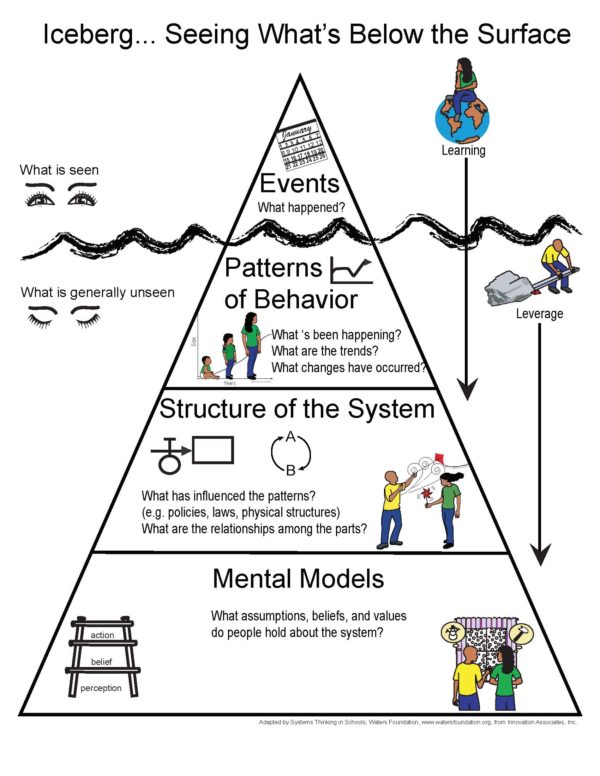
As a prelude to the Systems Thinking Institute coming up in March, Sheri Marlin from the Waters Foundation and Ellen Grasely and Betsy Markwardt from Humboldt Park K8 School helped facilitate and captured notes from our breakout groups in iceberg diagrams. The key idea behind systems thinking and this tool in particular, is that:
- outcomes are driven by behavior
- behavior is driven by the structure of the system within which individuals operate
- that structure, in turn, is driven by our mental model of how things should work.
To drive a systemic change in outcomes then, one needs to change the mental model we operate from.
In our discussions, we walked through each of these layers from the perspective of both how the current system works and what we’d like to see it move to. We wrapped up each discussion with the question “How will you move forward?”
Group 1
Current Situation
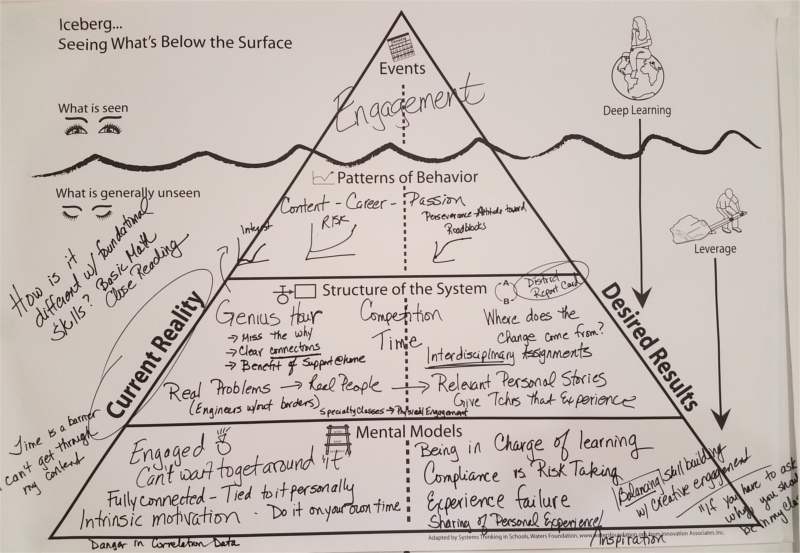
Desired Results
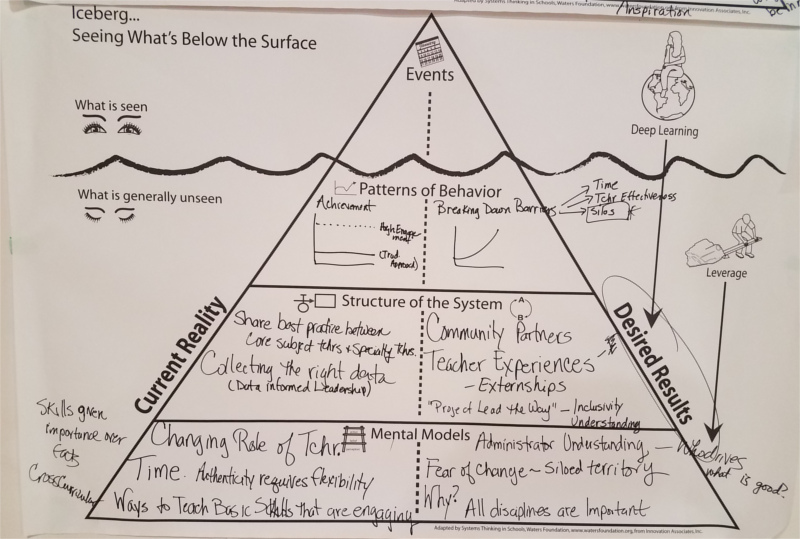
How will you move forward?
Long term
- Start your own school
- Redo licensure
- Only hire pros (interesting people), pay them $$$, train them to teach
Medium Term
- Invest in professional learning: Articulate, spend time $, 3 years of focus
- Develop testing
- Common planning time
Group 2
Current Situation
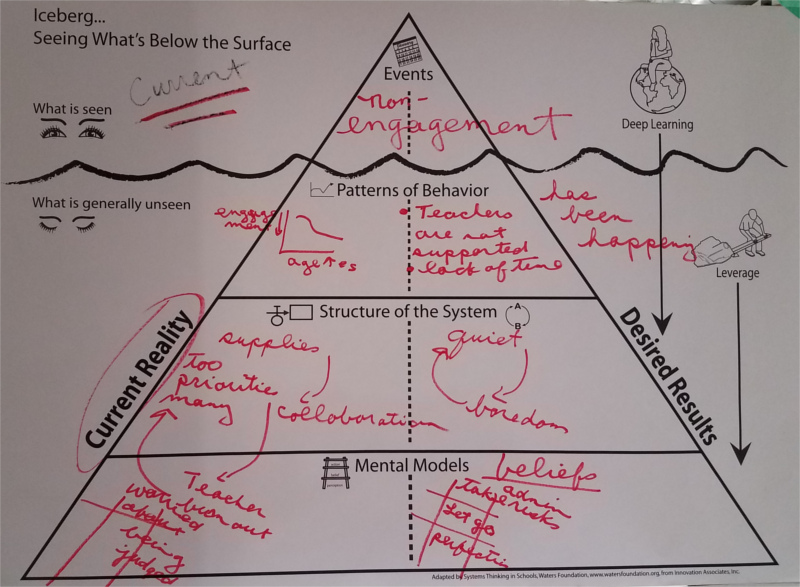
Desired Results
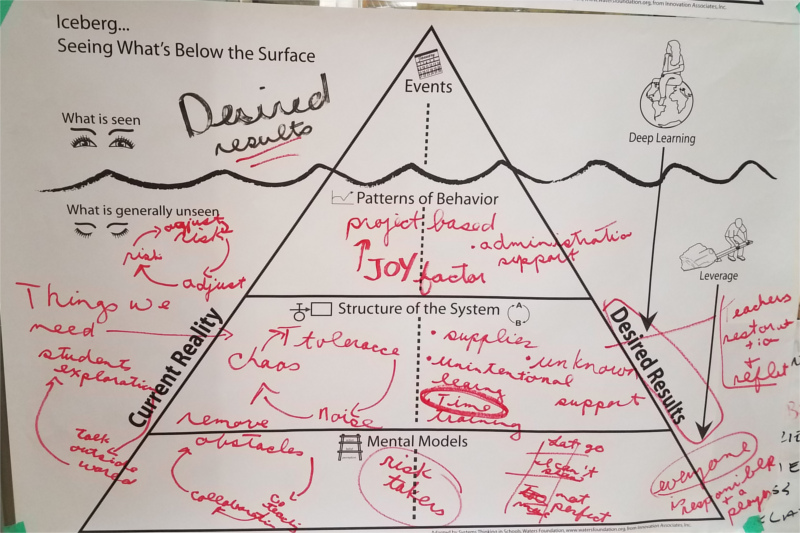
How will you move forward?
- Reflect on how you react to an engaged classroom vs an unengaged classroom
- Pay attention to school culture – everyone
- Ask kids what would make this fun for you, excite you
- Build personal relationships
- Help to change your mental model, parents’ mental model, kids’ mental model of “school”
- Teachers learn to reflect and take the time to restore (remove yourself)
- Autonomy, purpose, mastery
Group 3
Current Situation
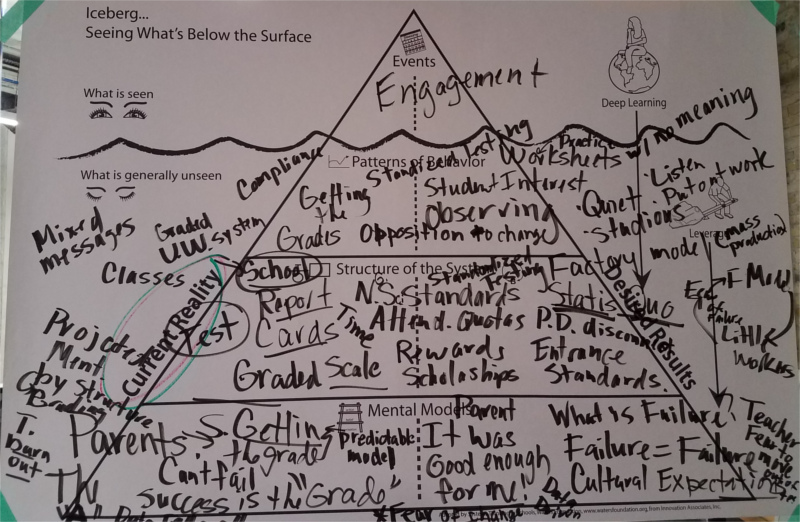
Desired Results

How will you move forward?
- Rubric Scoring
- Stories
- Find allies — kids in particular
- Build from grass roots
- Relationships are key
- Ask for solutions as part of homework
- Root solutions in research
- Training for parents — table talk questions so parents– promotes to meaningful discussions of what their kids are actually working on

